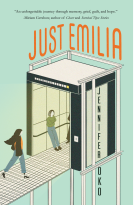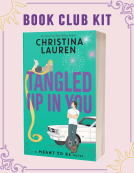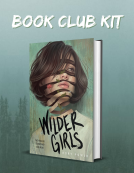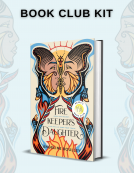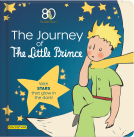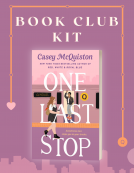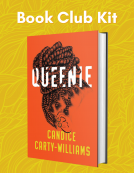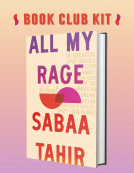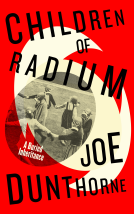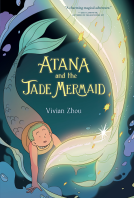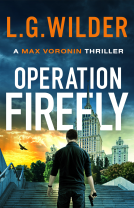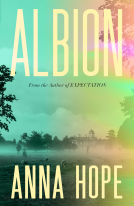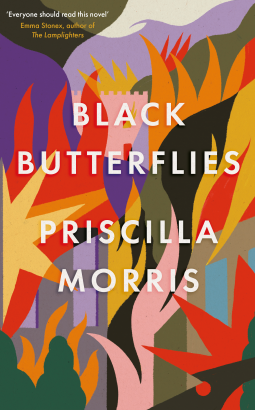
Black Butterflies
by Priscilla Morris
This title was previously available on NetGalley and is now archived.
Send NetGalley books directly to your Kindle or Kindle app
1
To read on a Kindle or Kindle app, please add kindle@netgalley.com as an approved email address to receive files in your Amazon account. Click here for step-by-step instructions.
2
Also find your Kindle email address within your Amazon account, and enter it here.
Pub Date May 05 2022 | Archive Date Apr 06 2022
Talking about this book? Use #BlackButterflies #NetGalley. More hashtag tips!
Description
Sarajevo, spring 1992. Each night, nationalist gangs erect barricades, splitting the diverse city into ethnic enclaves; each morning, the residents – whether Muslim, Croat or Serb – push the makeshift barriers aside.
When violence finally spills over, Zora, an artist and teacher, sends her husband and elderly mother to safety with her daughter in England. Reluctant to believe that hostilities will last more than a handful of weeks, she stays behind while the city falls under siege. As the assault deepens and everything they love is laid to waste, black ashes floating over the rooftops, Zora and her friends are forced to rebuild themselves, over and over. Theirs is a breathtaking story of disintegration, resilience and hope.
Marketing Plan
· Published to mark the thirtieth anniversary of the start of the Siege of Sarajevo (1992–96)
· Exquisite storytelling about twentieth-century conflict, for readers of The Tiger’s Wife, The Cellist of Sarajevo or Half of a Yellow Sun
· Supported by an unmissable publicity and marketing campaign
Available Editions
| EDITION | Hardcover |
| ISBN | 9780715654590 |
| PRICE | £16.99 (GBP) |
Links
Featured Reviews
 Media/Journalist 908597
Media/Journalist 908597
Such a beautiful narration about a part of history I know very little about. Morris's writing and characters will stay with me for a long time.
I was so intrigued to read this novel on discovering that it was set during the siege of Sarajevo, this being something I unfortunately don’t know much about. With such an original subject matter it’s brilliantly different from anything else I’ve read.
Historical fiction not to be missed. 🇧🇦
Thanks to Netgalley and the publishers for letting me access an advance copy of this book in exchange for my feedback.
This is the brutal account of the war in Bosnia and the devastating consequences for the residents of Sarajevo. We have all encountered spells of suffering from cold, lack of heat, water and food but these are insightful in comparison to the horrors of these combined with a city under constant fire. It’s not a case of survival of the fittest, but perseverance, compromise and hope. I knew so little about this period in our history, as I’m sure others will agree, hence it is a remarkable book bringing enlightenment. An extremely readable account, written with empathy and courage. Once in a while a novel of this magnitude hits the shelves and I’d encourage anyone who has the slightest curiosity as to what actually occurred in Sarajevo at the beginning of the war to read this account of death and destruction. Although it’s a work of fiction, the facts run true.
My thanks to NetGalley and the publishers Duckworth for this advance copy in exchange for an honest review.
 Geo P, Reviewer
Geo P, Reviewer
Black Butterflies by Priscilla Morris is a story of the first year of the war in Sarajevo from the perspective of an artist named Zora. This is purely how the war changes the city and its people, how they survive in adversity and come together through the worst of times. Whilst the book covers the horrors and devastation of war, the author is able to tell the story without being overly morose, there is always some glimmer of hope. I would have liked to have spent more time with the characters before the war had started in order to have had a greater understanding of their dynamics and how they change through the book but I don’t believe this is something that is vital to the story. I appreciated the author’s note at the end as this is clearly a very personal story that needed to be told.
Black Butterflies – Priscilla Morris (2022)
Set in Bosnia’s capital during the 1992 Siege of Sarajevo, Priscilla Morris’s debut novel is both a brutal account of the horrors of the Bosnian War, and a warm reflection on love and community in the face of adversity.
Zora is a painter and professor of art, living comfortably in Sarajevo with her family. When her husband decides to bring Zora’s elderly mother to visit their daughter in England, Zora stays put, which turns out to be a life-altering decision. As the rumblings of civil unrest turn into all-out combat and famine, Zora and her neighbours become a close-knit community, sharing what little they have, building and rebuilding their lives amid a vicious war.
Fiction is so powerful; I knew so little about the Bosnian War going into this book, beyond the countries involved and that it was brutal. This novel is so well researched and captures the fear and humanity of the conflict so well; the story is based on the experience of the author’s uncle, which lends it reality and urgency.
Zora is a fully-rounded protagonist, and her struggles and decisions are just so relatable. She is warm and kind without being infallible, and her capacity for love shines through. Her neighbour Mirsad is another beautiful soul, as well as the other neighbours in her building. Despite the horrendous backdrop of the war, this book still has a gentleness at its core; there is beauty to be found in our darkest hours.
This novel also highlights the mundanity of life during conflict; everyone still has to eat, sleep and keep their minds occupied. Humans need stimulation and connection, and that doesn’t change when times become difficult. The imagery of black butterflies peppered throughout the book is powerful and destructive and will stay with me.
Thank you to Netgalley and Duckworth for the ARC! Black Butterflies will be published on May 5th, 2022.
 Rebecca W, Bookseller
Rebecca W, Bookseller
Although the siege of Sarajevo occurred during my early childhood, I knew almost nothing about it, and was intrigued to read Black Butterflies by Priscilla Morris, which charts the experience of a fifty-something year old artist, Zora, through the early days of the siege and beyond.
This was an engrossing and informative read, at times harrowing, but never heavy-handed. It felt particularly spine-tingling to observe Zora's disbelief that her happily cosmopolitan city could be ripped apart by wider events, and the guilt and inner conflict that she feels in her desire to escape her home as it descends into the horrors of siege warfare. I also welcomed the opportunity to read a novel with a mature female protagonist, a perspective that rarely seems to take centre stage in contemporary culture.
As with Cormack McCarthy's 'The Road', I emerged from this novel with a sense of gratitude for the safety and security of my own daily life, and for being given such a rich and sensitive insight into the Yugoslav wars.
 Kate S, Reviewer
Kate S, Reviewer
Oh I loved this novel! Read in one evening I didn’t even notice the speed with which I was nearing the end. I was a teenager of 18 during the war and while I remember it being on the news for months it never really felt relatable to me in the way the world wars did.
Zora is a wonderful protagonist around the age I am now I warmed to her right away. The joy and worry of having adult children out in the world without you and the new joy of freedom from active parenting and time to spend on your own passions are themes many woman will emphasise with.
The use of art work throughout the book is beautiful, from Una and Zora’s tree on the apartment walls to the wonderful ‘pop up’ exhibition that Zora organises in the apartment block and in to the most tragic and beautiful of all the titular black butterflies. Never when I began the book did I realise that this was where the novel got its name and my heart broke for Zora and Sarajevo.
This novel reminds us how easily we can be lulled into sleepwalking into war. It is hard to imagine why so many Jews stayed in Western Europe in the late 1930’s when viewed with hindsight but as Morris shows us here, it happens gradually and as Zora found there are even pockets of positivity as when she realised how much time she had to spend painting because her family had gone to England. Zora and her neighbours remained convinced that the end was just around the corner and that the worst had already happened.
I loved the afterword and hearing the stories that inspired Priscilla Morris to write this book. I think she did everyone she mentioned proud.
I think this book will become a ‘must read’ and will do much to improve peoples knowledge of the war and who the peoples involved. And hopefully it will inspire a younger generation to learn about this period in history and to learn compassion for refugees and asylum seekers.
 Reviewer 937836
Reviewer 937836
Historical fiction done right! I didn't know anything about the Bosnian War before reading this but you can tell from the story and the afterword, how much research and effort was put in by Morris to accurately bring the heartbreaking events of the Bosnian War into the book. The writing was simple enough to not be confusing but compelling enough to feel and see the various emotions Zora was feeling, despite it being written in 3rd person.
The imagery of the black butterflies carried throughout the book was beautiful, and a worthy title.
Thanks Netgalley for the ARC.
 Reviewer 629472
Reviewer 629472
Multi-cultural Sarajevo, with its splendid Hapsburg past eventually comes under siege in the Bosnian War of 1992. With devastating results.
In her remarkably powerful debut novel, Morris recreates the full horror of life in a war zone that thankfully, most of us only see on our news bulletins, albeit with accompanying vivid, reporting from exceptional foreign correspondents like Kate Adie and Frank Gardener.
Zora, the central character is an artist and teacher with a studio in the National and University Library where she paints exquisite landscapes of her beloved homeland. As the situation becomes more dangerous for civilians, she arranges for her husband and elderly mother to relocate to her daughter Dubravka and her husband Steve’s house in England.
It all begins quietly enough. Streets are safe, shops are full and men still play chess under the trees. But very quickly and coinciding with the bitter winter, snipers, explosions and fires reduce the city to a hell hole. Scraps of black paper are soon, all that is left of the magnificent library and Zora’s paintings. She and her neighbours join forces to survive but conditions become increasingly brutal, and hunger, fear, cold, lack of water and grief begin to take their toll.
It takes unbelievable courage, determination and resilience just to survive, let alone maintain some kind of feeling.
Thank you, @NetGalley and @DuckworthBooks for my pre-release copy in return for an honest review.
Bravo, Priscilla Morris. A privilege to read your novel.
Zora is a landscaper painter, trapped in the siege of Sarajevo in 1992. Isolated from her family, she'll try to survive the conflict, with her friends' help.
Like one of Zora's paintings, Priscilla tells the story of Sarajevo's war survivors and the atrocities they had to endure during the years of war. Describing small pieces of the surroundings, the feelings, the sounds and the smells, she's adding another stroke to the final painting.
It's an emotional and immersive book, rich in context without falling into gore details. A delicate piece of art for a cruel part of Europe's recent history.
 Jackie M, Book Trade Professional
Jackie M, Book Trade Professional
Beautifully written and so sad - I remember this well, being on our doorstep and feeling for all those trapped in Sarajevo, which I'd visited before all this happened. Also knew people from Sarajevo over here and it was horrible for them. This brings it all to life so we can all see what they went through. But how awful to have to live with wondering what happened to those left behind.
Black Butterflies is a compelling piece of historical fiction, a very readable account of civilian life during the 1992 siege of Sarajevo. Empathic and immersive, it’s a story of humanity and community in a war zone: a story of survival when everything seems to be falling apart.
Morris is interested in the everyday practicalities of living in a war zone – how to eat, sleep and stave off boredom – and her unassuming prose reflects that. It’s clear and easy to read, but she also captures some real moments of beauty and gut-wrenching brutality. The ‘black butterflies’ are a brilliant example of this, an image which is poetic, tragic and literal all at once. The writing may seem understated, but I was impressed at how skilfully crafted it is, especially for a debut.
Black Butterflies is a rare gem of a novel that celebrates kindness amidst horror, without romanticising war in any way. Highly recommended.
Black Butterflies tells the story of Zora, an artist living in Sarajevo when the Bosnian war breaks out in 1992. The piece of historical fiction is beautifully written, Zora's story is both heartbreaking and full.of hope and I thoroughly enjoyed reading it.
Whilst the Bosnian war took place during my lifetime, I was too young to remember it clearly and everything I know about it, I have learned through books. Black Butterflies marks the 30th anniversary but as I read the story, there are times it is hard to believe this was only 30 years ago. The book spans the first year of war, as the siege begins and through that first frozen winter. Zora is a wonderful protagonist, relatable, full.of empathy but flawed too and I respected the way Morris told her story without romanticising war. It is a tale of community and hope through adversity and the note at the end showed me what an important story it was for her to tell.
This is a fantastic piece of historical fiction and I highly recommend it
Black Butterflies is literary fiction but reads almost like a memoir. It takes you to Sarajevo in 1992 real time through the eyes of Zora, an artist and tutor who along with her neighbours experiences the brunt of the siege. This siege, by some Serbs, surrounded what had been a wonderful multi-ethic, highly cultured society. A society none expected would turn into a war zone.
The language the author uses is incredible in both its beauty and its harshness. It’s also immersive. I was in Sarajevo, and it is rare a book has so much power to transport me in such a multi-sensory way. The horror, the moments of lightness, the unremitting awfulness of losing almost everything… no work, no food, no power, no water… while being under fire. It all became absolutely real and that is an incredible talent.
I guessed early on that the author had access to first hand accounts and this proved to be the case. Although fictional, Black Butterflies is a melding of two family stories, and the experiences of a larger number of people, but skilfully woven together they make a unified whole.
A word of warning though; if you are particularly anxious about the situation in Ukraine, this isn’t the time to read this book. However if you would prefer to think on how conflicts do end, how people come out of the other side and go on to lead normal lives, then do.
 Reviewer 823951
Reviewer 823951
Published to mark the thirtieth anniversary of the start of the Siege of Sarajevo (1992–96)
Sheer escapism, beautifully written, I will look for more of this author’s work.
My thanks to the publisher and Netgalley for my advance copy of this title. I highly recommend it.
 Katherine B, Reviewer
Katherine B, Reviewer
Zora, her husband and mother all live in Sarajevo. When Sarajevo is attacked her husband and mother leave for England where their daughter lives but Zora stays behind as she teaches at the local college. Eventually Sarajevo is under seige the phones lines are cut, there is no postal system and the electric supply is sporadic, there is also constant bombing. The UN drops emergency food parcels, will Zora manage to escape?
Well written, invoking the depravations of the people, I would recommend reading this book.
In a Nutshell: An enlightening and traumatising fictional account of a war I wasn’t much aware of – the Bosnian war of the early 1990s. Well-researched, well-written, traumatising, bitter-sweet.
Story:
1992, Sarajevo. Zora is a 55 year old artist who teaches art at college and loves to paint bridges and nature scenes in her spare time. She stays with her 70 year old husband and also has her 83 year mother staying nearby. When the war begins, Zora’s family doesn’t believe that it would go on for long. But when the law and order situation degrades after some ethnic groups tussle over their rights, Zora’s husband plans to take his sick mother-in-law to the UK where his daughter lives with her family. However, the transport lines are closed soon after his departure and Zora find herself stuck all alone in a war-torn city, with hardly any resources, very few trustworthy neighbours, and no hope of escape.
The story is narrated in the third person perspective of Zora.
First, know a little more about the Bosnian War to realise how historically significant (and monumentally stupid and infinitely wasteful) it was. Estimates suggest around 100,000 people were killed during the war. Over 2.2 million people were displaced, making it the most devastating conflict in Europe since the end of World War II. In addition, an estimated 12,000–50,000 women were raped, mainly carried out by Serb forces, with most of the victims being Bosniak women. The author focusses on the experiences of those surviving in the part of Sarajevo that was under attack by the Serbs. I was grateful that she didn’t include any rape narratives in her story – I don’t think I could have handled that. Simply reading this statistic is enough to depress me.
Where the book worked for me:
💐 It was an eye-opener! There were so many situations I simply couldn't fathom - your family property being distributed among strangers because of a communist government's weird beliefs, being on the waiting list for more than a decade to get a flat allotted, the government declaring that anyone can move into empty house as the owners have “abandoned” them… and this is even before the actual war began! How we take our privileges under democracy for granted! Sigh.
💐 The author pays fair attention to each of the ethnic groups in Sarajevo. To use her stats, “half of Sarajevo is Muslim, a quarter Serb and fewer than one in ten are Croat. About a third of the population are in mixed marriages.” All of these are represented fairly in the story through characters coming from various ethnic identities. More importantly, no sides are taken. (The author mentions in her note that there are no ethnic identities but national identities in Bosnia, but unless you read her note entirely, you won’t understand why. So I stuck to the word “ethnic” in this review.)
💐 There are no breaks through regular chapters. Instead, the narrative is divided in long sections named by season – Spring, Summer,... This was a great way to highlight how time passes differently under situations of siege. (Don’t we all remember how time almost stopped during the lockdown?!?) This feels like one endless story that spirals slowly into a kind of claustrophobic hopelessness.
💐 The title has a special significance in the story, and this gets revealed only about the midway mark in a distressing event. I would have thought it to be an exaggeration but when I read that part, I remembered a scene from the first episode of the TV series ‘Chernobyl” where a similar experience with “black butterflies” was shown. That scene helped me visualise this event properly. In addition, you can search online for the meaning of “black butterfly” and once you read the book, you will see what an apt title it is for this story.
💐 There is a strong underlying theme of bridges, which is so ironic in a war story. Zora’s specialty is painting bridges. Her latest artwork is set around one of the main bridges of the city. Some folk stories within the narrative are set around bridges. And yet, all the bridges between Sarajevo and the outside world have been destroyed by the war, as have the internal metaphorical ridges between the different ethnic groups.
💐 There are many situations in the book that will show you the side of war you have hardly ever seen in fiction. Some scenes create a claustrophobic feeling; others are way too disquieting. The story hits hard on your emotions. The writing enhances the impact. Sample this line written by Zora in a letter:
“We're all refugees now. We spend our days waiting for water, for bread, for humanitarian handouts: beggars in our own city.”
💐 The ending is perfect for such a story.
💐 The author has researched her book well and it shows in the detailed and precise penning of incidents and feelings.
💐 The author’s note clarifies which two person’s experiences she combined and adapted into this story. That lent a lot of validity to what would otherwise have seemed as fictional events improbable in real life.
💐 I couldn’t believe that this was a debut novel. It has a maturity lacking in the writing of far more experienced authors.
Where the book could have worked better for me:
⚠ If there was one thing that strongly took away from my experience, it was the romantic track. Yes, yes, I understand… war time, living in the present, exceptional circumstances, absent spouses, can’t function within normal societal rules,.. blah blah.. But it was still forced and unnecessary to the main plot.
⚠ There are a lot of lengthy descriptions of the city and its sites. It felt like an emotional ode to Sarajevo, a tad overdone. (This is understandable given the topic of the book.)
⚠ I wasn’t much familiar with the details of these events except for a skeletal knowledge of the war having taking place. So I found myself a little lost at times in understanding the geography and the politics of the region. I also didn’t understand what issue the war began over. (Then again, one of the characters says that even they fail to understand why the war took place in the first place. So I guess there’s no real answer to this question.) I would have appreciated a brief note at the end on the facts behind the cause of the war and the political climate at the time, just like the facts behind the ethnic groups were clarified in the author’s note.
⚠ The book is marked as literary fiction but it is more of a commercial historical fiction. This didn’t make any difference to me this time but to those who expect a book to cater to its advertised genre, this could be a minor problem.
I couldn’t help connecting this story with the situation in Ukraine right now. Of course, the author hasn’t written this book to capitalise on the current war because I had received this book from NG in January and it is meant to be published on the 30th anniversary of the ‘Siege of Sarajevo’. But there are so many similarities between the experience of Zora and what we read about Ukraine in the newspaper. It makes me feel like no matter how much our technology progresses, we humans don’t progress in “humanity” – our thoughts are still all about power and control, whether over nature or over other people. We are truly a selfish species on the whole. 😟
All I can say is, if you are looking for a book that unfolds the hidden costs of war on the citizens forced into it, and that juxtaposes many opposite feelings - vulnerability and resilience, hope and hopelessness, devastation and creation, this is the book for you. But please note, if you are in an anxious or depressed state of mind, I suggest you stay away from this book until you are in a happier mental place.
4.5 stars.
My thanks to Duckworth Books and NetGalley for the DRC of “Black Butterflies”. This review is voluntary and contains my honest opinion about the book.
Set during the siege of Sarajevo in the Bosnian War which took place in the 1990s this is an extremely well researched, thoughtful, and sympathetic novel It follows the life of Zora a Bosnian Serb who is trapped in Sarajevo on her own and charts the steady and relentless collapse of the life she has known. As the hardships to be endured pile up Zora finds support and love from and with her neighbors which enables her to carry on living amid all the mounting horror. This is an emotional story written with tenderness and understanding drawing on the experiences of the author's family for authenticity. The worst of the horrors Zora endures are described in an understated way but remain shocking without the need for extensive graphic detail.
This is an excellent debut novel that plays on the emotions of the reader and gives a timely reminder of the futility of war without taking sides. I have no hesitation in recommending this book.
What a beautiful, haunting and brutal book!
This is the story of the Siege of Sarajevo told through the eyes of an artist, showing the terrors of war and violence, of families and friends split apart by conflict.
These are not events I was familiar with, being born in 1992 myself, so it was extremely eye-opening.
Zora's love for her city was heartwrenching at times, but her strength and perseverance were inspiring.
The descriptions of the city were amazing, it was incredibly easy to imagine everything. I also loved the folklore tales dispersed throughout the story.
The burning down of the library and people risking their lives to save the books really hit me hard. The reason for the title of the book is perfect.
I am so emotional right now having finished this horrifying story, I am in awe of Priscilla Morris' truly touching writing and ability to tell this story. The ending is quite bittersweet, the descriptions of England were incredibly spot on and made me tear up even more - with hope.
I can't wait for this book to be published so I can persuade everyone I know to read it. I don't think I'll ever forget Zora and her hardships.
Thank you to NetGalley and Duckworth Books for this ARC.
 Margaret M, Reviewer
Margaret M, Reviewer
What an appropriate time for this novel.
We are all horrified by the events unfolding in Ukraine, this novel based on fact highlights the atrocities and suffering of the civilians in war torn regions.
Zora is happily living in Sarajevo, working as an established artist with a beautiful studio. The war starts slowly but increased in pace until Zora and her husband realise they must take her Mother to England. Zora wants to stay and look after her home and get Mother's which displaced people have already tried to occupy.
Against a background of bombs, desolation and mistrust she finds solace in her work and befriends her neighbour, he is sheltering his son who has been called up.
Zora is finally put on a list to be evacuated, but her place is refused at the last minute. Through a bitter winter with little food and water she turns to her neighbour for comfort.
What a heart wrenching story , deprivation so well described and situation of resident groups looked at from a different perspective. Made me look further into the conflict.
Thank you NetGalley and Priscilla.
The story gives the reader a glimpse of the war in Bosnia. The story shows what happens to families and what is needed to survive. This was such a good book. I love historical fiction, especially when it is about eras/ situations that I previously knew nothing about and this was definitely one of those books. It was so well researched and so compelling in its narrative that not only did I love reading it but I felt that I learned too. A really enjoyable read and perfect for any fans of historical fiction. This is a first for me by the author and one I enjoyed and would read more of their work. The book cover is eye-catching and appealing and would spark my interest if in a bookshop. Thank you very much to the author, publisher and Netgalley for this ARC.
 Mallika R, Reviewer
Mallika R, Reviewer
My thanks to Duckworth Books and NetGalley for a review copy of this book.
Black Butterflies is a beautiful, powerful, heart-wrenching, and haunting story of a city torn by war, and of its people, coping not only with the adversities of daily living, but also the helplessness and heartbreak of seeing the city they love destroyed before their own eyes. Based on real-life incidents and experiences from her own family and relatives, author Pricilla Morris paints a picture from a few decades ago, that has resonance and relevance in the present context.
Zora Kočović is a professor of art at the Academy of Fine Arts at the University in Sarajevo, where she lives with her husband Franjo, a former journalist and eighty-three-year-old mother, who spends winters at their flat. Sarajevo is a city Zora knows and loves deeply, so much so, that she can’t envision living anywhere else:
She loves Sarajevo. She knows all its alleys and courtyards, all its scents and sounds—the way the light falls at the end of their street in wintertime, the rattle of the tram, the blowsy roses that bloom each June in the mosque gardens, the plums and fogs in the autumn, the ponderous old men playing chess in the cafés, the mahalas—the old neighbourhoods—that radiate from the centre like the spiral of a snail’s shell.
Sarajevo has always been multicultural—its people living and mixing harmoniously, most families mixed—most celebrating the festivals of all cultures. But now there is unrest. Conflict is brewing—people starting to leave, and refugees allowed to occupy any flat that’s empty. Zora decides that while she will stay back a while for her painting and her job, Franjo and her mother are to travel to England for their annual visit to their daughter Dubravka, married to an Englishman, Stephen and their little daughter Ruby. Zora will join them later.
While things are difficult and there are small obstacles she must face, Zora begins to enjoy the solitude and the chance it gives her to engage in her painting. But before long, things take a turn for the worse, and the conflict turns into a full-blown war. The city is being destroyed all around her, going to university or her studio is no longer an option, and her own apartment building is damaged in the shelling. Things start to get scarce—food, water, electricity—and then completely vanish. The little contact she had with her family on the telephone too comes to an end, when lines are cut off. All the residents of Zora’s apartment building come together, helping each other cope with a situation most of them find hard to understand. We follow Zora as she tries to come to terms with all that’s going on.
This was a wonderful though heart-breaking book which kept me reading all through, and one which I highly recommend.
The Bosnian war of 1992–1995 was something I knew little about, and this book helped me get some context. While the book doesn’t go into the motivations and differences that led to the conflict (indeed, the characters themselves are at a loss to point a finger at why), it goes give one an insight into the kind of multicultural space Sarajevo was. I had no idea that it was part of the Ottoman empire once, and enjoyed getting glimpses of its culture like how festivals were celebrated and some folklore as well as some of its bridges and landmarks. Sarajevo’s people continue to fight against the seeds of division that the conflict tries to sow (there are some of course, who hold radical views, too). A particularly beautiful, yet highly distressing moment is where people get together to save what they can from the library which is on fire:
Have you ever heard of such a thing? A human chain to rescue books. A moment of coming together, of resistance. But what good did it do? They say almost two million documents burnt in there. First editions, rare manuscripts, land records, newspaper archives. Our heritage destroyed in a night.
The focus of our story is Zora’s experiences. With her we too watch as a rich, bustling, lovely city is plunged into war—as a relatively normal life (there is unrest already when the story opens) deteriorates into a struggle for day-to-day survival—a battle not only against the war and its weapons, but also against its impacts, whether lack of basic necessities or the elements or the constant insecurity and uncertainty. Before long it seems—there are no beginnings and endings. Just war.
Zora must cope with much—the struggle for survival, the pain of watching the city she loves being torn to pieces around her, her art that she lives for and through which she expresses herself destroyed, separation from her family (whom she needs more than ever at these times), grappling with the question of leaving versus staying, and really also wondering about the war itself which makes no sense. Morris gets us to experience every little emotion with Zora—the shock, the hurt, the cold, the hunger, also the few moments of comfort or happiness snatched amidst it all. And she treats it with subtlety and sensitivity—we feel pain, loss, helplessness, hopelessness—and without bringing in the slightest hint of drama.
Art is also an important thread of the book. This is what Zora does and also really the way she expresses her love for the city and also her emotions towards it. Initially we see her painting its bridges and landscapes—and later the destruction and fires that take over the city. Art also ends up offering her solace, when she feels lost, for her neighbours sending their little daughter Una for lessons gives her (in fact them both) something to look forward to.
While we see and experience everything though Zora’s perspective, we also get a sense of the community—her neighbours particularly who turn into a source of much needed comfort and support for each other during the ordeal—while each also deals with their own problems.
A beautiful and poignant read. 5 stars!
A beautiful and moving book. Divided into the four seasons of the year it takes us through the year in the life of an artist: charting her personal reaction to and experience of war. What makes it compelling is alongside the descriptions of a city being slowly cut off from the outside world it also explores the inner world of someone experiencing that. The daily minutiae alongside the big picture of a city being destroyed. It is very accessible and personal as a result. The final chapters are unbelievably emotional.
 Reviewer 595368
Reviewer 595368
I was only 10 when the Bosnian war began and was largely unaware of the atrocities that took place, including the almost four year siege of Sarajevo. This absorbing debut novel calls on stories from the author's family which inspire some of the events in Black Butterflies. It's a very raw and evocative read, giving a real sense of what it must have been like to live within the siege and as much as there is sadness there is also hope, a brilliant debut.
In its story of a diverse, peaceful community transformed by nationalism into a place of fear, death and destruction, it’s impossible to read Black Butterflies without thinking of the current war in Ukraine and, in particular, the siege of Mariupol. Through the experiences of Zora and others like her who remain in the city – increasingly not by inclination but due to the impossibility of doing anything else – the reader witnesses what it was like to live (although ‘exist’ might be a better world) through what became known as the siege of Sarajevo. Cut off from the outside world and at the mercy of snipers and enemy shelling, food shortages, lack of power and fresh water turn a once civilised thriving city into a virtual wasteland. And when winter comes, bringing with it sub-zero tempratures, every day becomes a battle of survival.
For Zora, being deprived of her ability to make art is almost as bad; being an artist is part of her very identity. It’s why the obliteration of cultural sites within the city and along with it the destruction of books, works of art and Zora’s studio has such a devastating effect on her. Gradually, however, the making of art becomes something akin to an act of resistance, of cultural defiance and an example of a determination to ‘carry on’. For Zora, it also provides a distraction from day-to-day concerns and the increasing privations. Indeed, her experiences bring about a change in her art, transforming her style into something more experimental than the landscapes she produced before. Out of necessity she incorporates the detritus of war into her art, producing bold collages.
Amongst the horror and deprivation, there are snatched moments of happiness: a shared meal assembled from scraps of food, the telling of stories around a makeshift fire, a ‘bring your own art’ exhibition, the warmth of another body next to yours. The possibility of making a perilous escape from the city brings Zora hope that she might be reunited with her family but also a feeling of guilt for others left behind.
Based on the experiences of those who lived through the Bosnian war, including the author’s own family, Black Butterflies demonstrates the strength of the human spirit, the power of art but also, as the people of Ukraine have discovered, that the peace and security we enjoy can vanish in a moment. To quote from John Buchan’s The Power-House, ‘You think that a wall as solid as the earth separates civilisation from barbarism. I tell you the division is a thread, a sheet of glass.’ Black Butterflies is an impressive debut novel.

